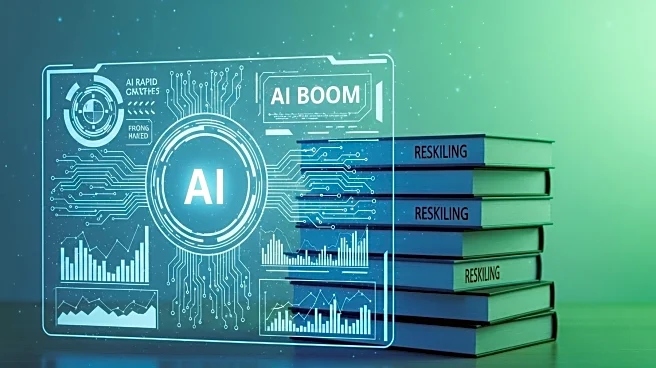What is the story about?
What's Happening?
The rapid advancement of artificial intelligence (AI) is prompting a significant shift in workforce dynamics, particularly for mid-to-senior level professionals. Companies are increasingly adopting AI to streamline operations, which has led to a reduction in demand for certain roles. This shift underscores the need for professionals to upskill and adapt to remain relevant. Organizations are moving away from traditional training models to more tailored, role-based learning journeys that align with business goals. This approach is crucial as the shelf life of skills continues to shrink due to technological advancements.
Why It's Important?
The emphasis on reskilling is vital for maintaining competitiveness in the job market, especially as AI and automation reshape industries. For businesses, investing in employee upskilling can lead to increased efficiency and innovation. For employees, acquiring new skills can enhance job security and career progression. This trend also highlights the importance of lifelong learning and adaptability in the modern workforce. Companies that fail to prioritize reskilling may face challenges in retaining talent and staying competitive.
What's Next?
As AI continues to evolve, the demand for reskilling will likely increase. Companies may need to further integrate learning into everyday work processes to ensure employees can keep pace with technological changes. Additionally, there may be a growing need for collaboration between educational institutions and businesses to develop relevant training programs. Policymakers might also play a role in supporting workforce development initiatives to address the skills gap.
















